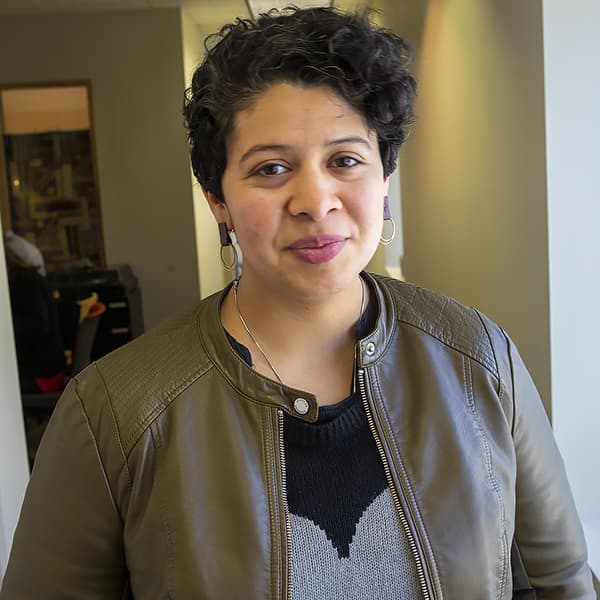Advertisement
MFA Boston union employees strike over wages and stalled negotiations
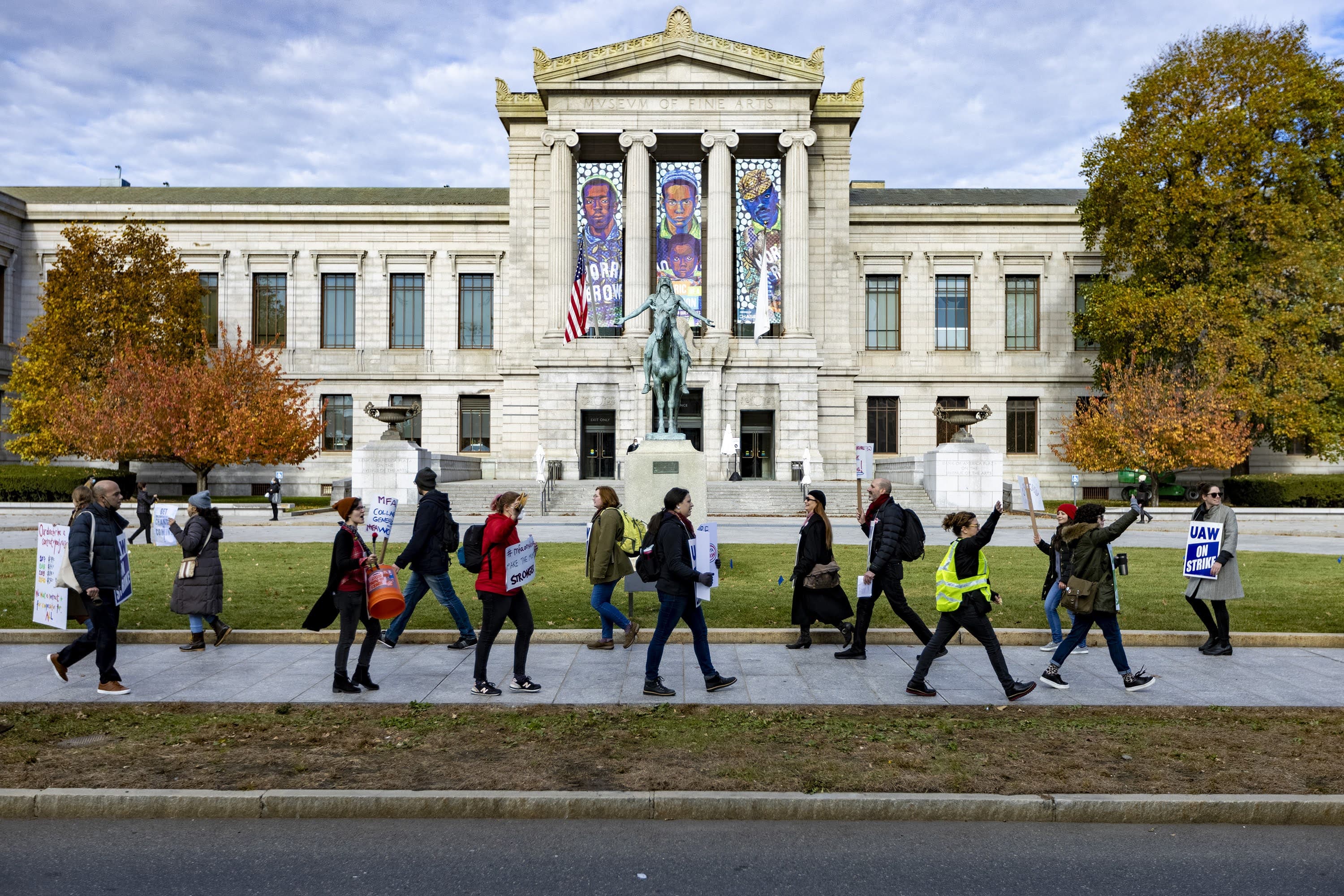
A drawing class documented the scene that played out in front of Boston’s Museum of Fine Arts Wednesday morning. Instead of capturing nature or scenery, they sketched a long picket line of marching workers, from curators to conservators, library workers to public-facing staff. The student’s drawing instructor, who did not want to give her name, said instead of crossing the picket line to enter the museum, she chose to remain outside with her students to show solidarity.
More than 100 workers marched on a cold morning, bundled in coats, holding signs aloft and chanting, “MFA you’re not good, sign our contract like you should.”
Employees said they want better wages and treatment, and many said they don’t feel seen or heard by museum leadership. They said they cannot afford to live in the city on what they earn. Others said their workload has increased since last year's layoffs.
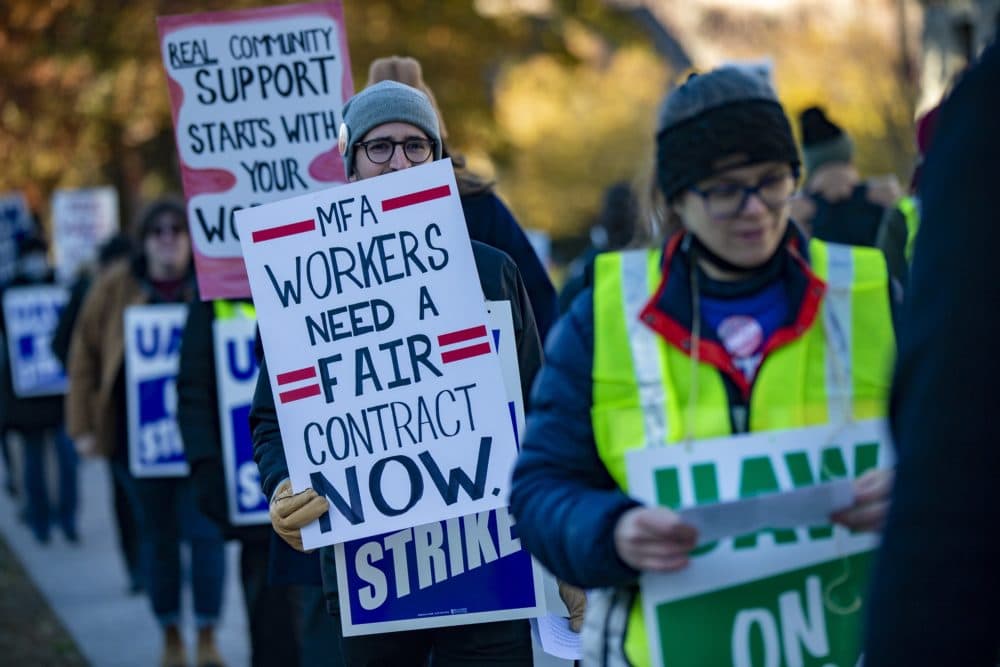
“No one wants to sacrifice a day of pay to stand outside in the cold,” said Layla Bermeo, assistant curator of paintings in the art of the Americas department. “So that really indicates that there is a problem with communication with our leadership. We're here today to support those who need their voices to really be heard in this discussion.”
Over 100 employees voted to unionize at the end of last year, joining United Auto Workers Local 2110. They’ve been in negotiations with museum leadership since March over pay, safety and workplace diversity. A majority of the union voted for the one-day strike after stalled negotiations, according to UAW Local 2110 president Maida Rosenstein. The union has another bargaining session scheduled for Dec. 3, and Rosenstein hopes this action is taken seriously. She said patrons have shown support.
“We want to power through until the museum closes and make as much noise and visibility as we can,” she said. “A lot of people have come over and said they feel terrible and don’t want to go in. A couple of museum members have come out to our picket line. I think visitors are getting the message.”
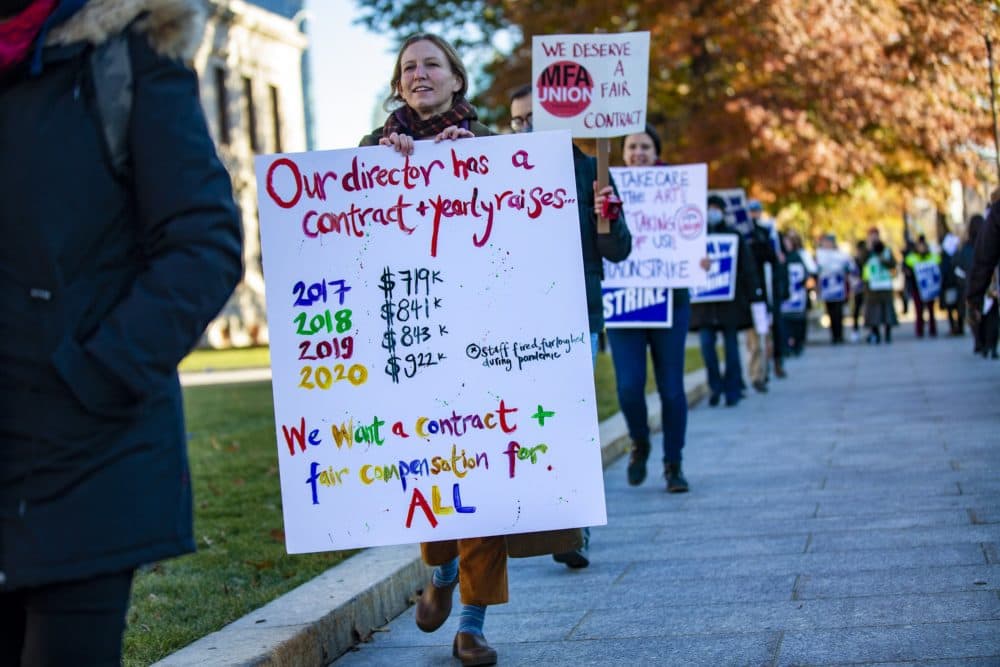
Lines of strikers snaked past two entrances of the museum. Someone played tuba while others beat drums and rang bells.
The MFA sent out an email to its members earlier this week noting that it would be open Wednesday and would operate with a smaller staff due to the strike. According to Karen Frascona, spokesperson for the museum, at least 130 other employees not represented by UAW reported to work. She noted in an email to WBUR that the museum has three unions total, making up 71 percent of MFA staff.
“I can say that we are working together toward an equitable and sustainable contract, including investing in staff, and an outcome that strengthens the institution,” Frascona wrote. “Typically it takes around 18 months to reach an inaugural collective bargaining agreement between a new union and an employer,” she wrote. “Our process has been ongoing for only seven months. We are eager to continue a productive dialogue with the union and hope to proceed swiftly but thoughtfully. We are confident we will continue to see positive progress.”
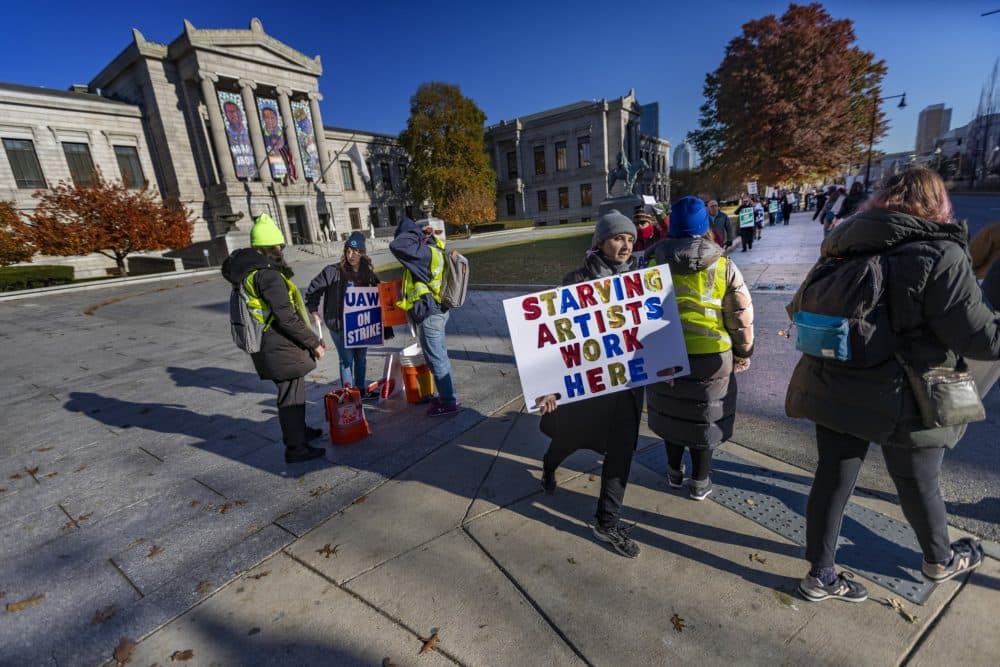
Frascona said the union has not responded to the museum’s last wage proposal, which was made more than seven weeks ago. The details of the negotiation process are confidential until concluded. She noted that MFA leadership took a temporary pandemic pay cut, ranging between 10 and 30 percent as “the institution faced significant headwinds from lost revenue and financial support.”
Rosenstein called the museum’s last wage proposal ridiculous. “They came up with an absurdly low offer that would essentially freeze wages until 2024 and then give a very, very small increase,” she said. “It's impossible for us to actually bargain against that... it was really insulting to people. So we've been trying to bargain with them consistently around wherever we can bargain, but they make it very difficult.”
Truck drivers and even a Green Line train conductor honked their horns in solidarity with striking MFA employees. There were snacks and coffee and plenty of hand-painted signs after employees got together to make posters. Michelle Millar Fisher is curator of contemporary decorative arts. She held a sign that showed what she called a vast disparity in wages at the museum.
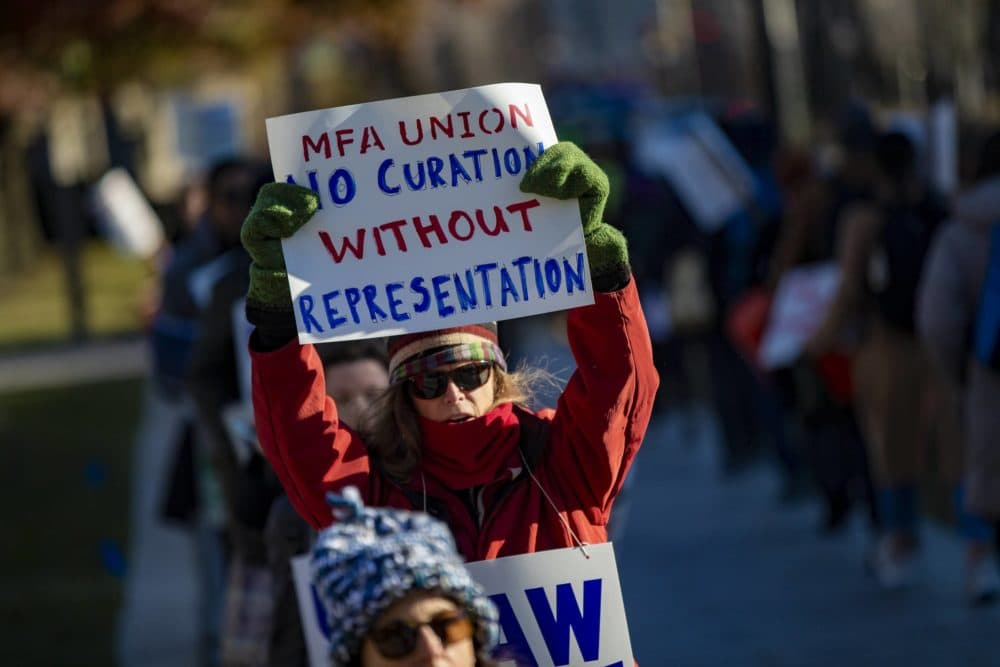
“I had a young colleague leave the museum last week, specifically because she could not get a raise. For the last four years, she was the life and soul of our department. She earned $42,000,” Fisher said. “We are losing younger staff. We are losing more diverse staff because they are not equitably treated. And so we cannot speak out one side of our mouth in the museum saying that we have a mission that's diversity and inclusion when we are not practicing that.”
Another employee, John Woolf, is the digital systems manager, and has worked at the museum for more than 40 years. He runs the digital photo studio and photographs all the artwork in the museum documented for books, publications, and web.
“I've been through five administrations, and this administration is by far the most egregious in terms of treating the staff,” Woolf said. “It’s incredibly top heavy... even before the pandemic people were leaving in droves. Work conditions were horrible. Morale was low. Wages were horrible and nothing's changed. It just got worse since the pandemic.”
